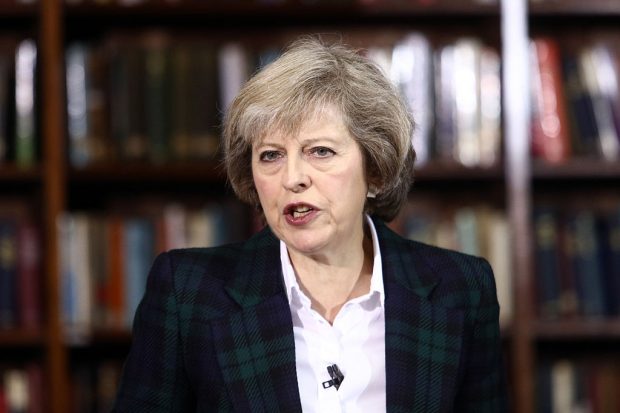The EU Referendum has served to emphasise the huge divisions which exist across our country. One of the most prominent and significant of these divisions is the disparity between those who are seemingly economically comfortable and those who struggle on a daily basis.
There are some who characterise these struggles as a natural conclusion of the austerity measures pursued by Coalition and majority Conservative Governments. If only it were that simple.
The EU Referendum brought to the surface decades of growing anguish from sections of the country’s working people: wages that never seem to rise coupled with increased pressure on local public services – a double whammy of discontent.
This is not a new phenomenon. Having travelled around the country as Minister for Civil Society, I have noticed the growing sense of a ‘them and us’. This palpable feeling of frustration with the ‘system’ has led directly to a desire to smash the whole thing to pieces.
It is a message that it would be wise for us as politicians to take extremely seriously; it has been a long time festering and is tinged with fury. But these divisions are not just for politicians to heal; we will need all of civil society to play its part: business, social enterprises, charities, local and national government.
Of course, it is for central Government and the Prime Minister to lead, but all groups and organisations across the country must be persuaded to follow. Even if huge quantities of public money was available for this, there are no grandiose programmes that will solve these complex challenges. People want to feel that life is fair and opportunity equal for all those who wish to take it.
I grew up in a poor household and know the struggle it takes to fight your way up every rung of the ladder; getting a good education, then training and finally a job with prospects. Even then, it would be disingenuous to suggest that class and social snobbery are not still serious challenges to be overcome before eventually being accepted. It wasn’t easy as I grew up and for many it is probably worse today, despite the social liberalism that has developed.
Our next Prime Minister has to challenge the system as never before if we are to increase opportunity for everybody in society. My challenge over the past few days has been to consider which of the five Conservative Party leadership and Prime Ministerial candidates is best placed to do this. Who understands the scale of the reforms required and possesses the resolve and assiduity to take them forward?
Each of the candidates is of the highest calibre, but I am convinced that Theresa May is best positioned to heal the divisions across our country. Indeed, she used last week’s launch to emphasise her credentials as a unifier, a One Nation Conservative, who is passionate about social justice and determined to build a country that serves the many, not just the privileged few. Theresa May was one of the first Conservative politicians to ‘get’ this, and was bold enough to say it. As Party Chairman in 2002, nearly 14 years ago, she famously told the party conference that the Conservative base at that time was ‘too narrow’, as were, on some occasions, the Party’s sympathies. Her message was clear: we needed to broaden our base and pursue more progressive, more inclusive policies.
David Cameron took up this challenge and has made significant progress as Prime Minister. Earlier this year he set out the government’s ambition to transform the life chances of the very poorest in our society. It is by extending opportunity that the cycle of poverty and inequality can be fought and the divisions across our country brought together.
Theresa May is extremely well positioned to deliver these improvements. Her record at the Home Office speaks for itself. In a role that had come to be seen as a poisoned chalice, felling the political careers of several ‘big beasts’ in the Labour governments, she has developed a formidable reputation for efficiency and steely focus. She’s delivered major policy successes such as cutting crime to record lows while making police spending more efficient, and working with both creativity and dedication to get round the legal obstacles to removing Abu Qatada from the UK.
But she’s also admirably stood up for justice: from standing firm in the face of American pressure to block the extradition of Gary McKinnon, to being the Home Secretary that finally helped right the wrongs of Hillsborough. For those people who are dissatisfied with the current system, for those stuck in a generational cycle of low aspiration, actions speak far louder than words. Many people across the country feel an uncomfortable sense of uncertainty at the moment, but you can guarantee that Theresa May will lead the country and the Conservative Party in her typically focused, earnest and diligent fashion. Her long-held recognition of the need to unify all parts of this country, together with her track record of quietly demolishing what seem to be insurmountable obstacles, are exactly what’s required if we are to finally and successfully reconcile the ‘us’ with the ‘them’.







Comments